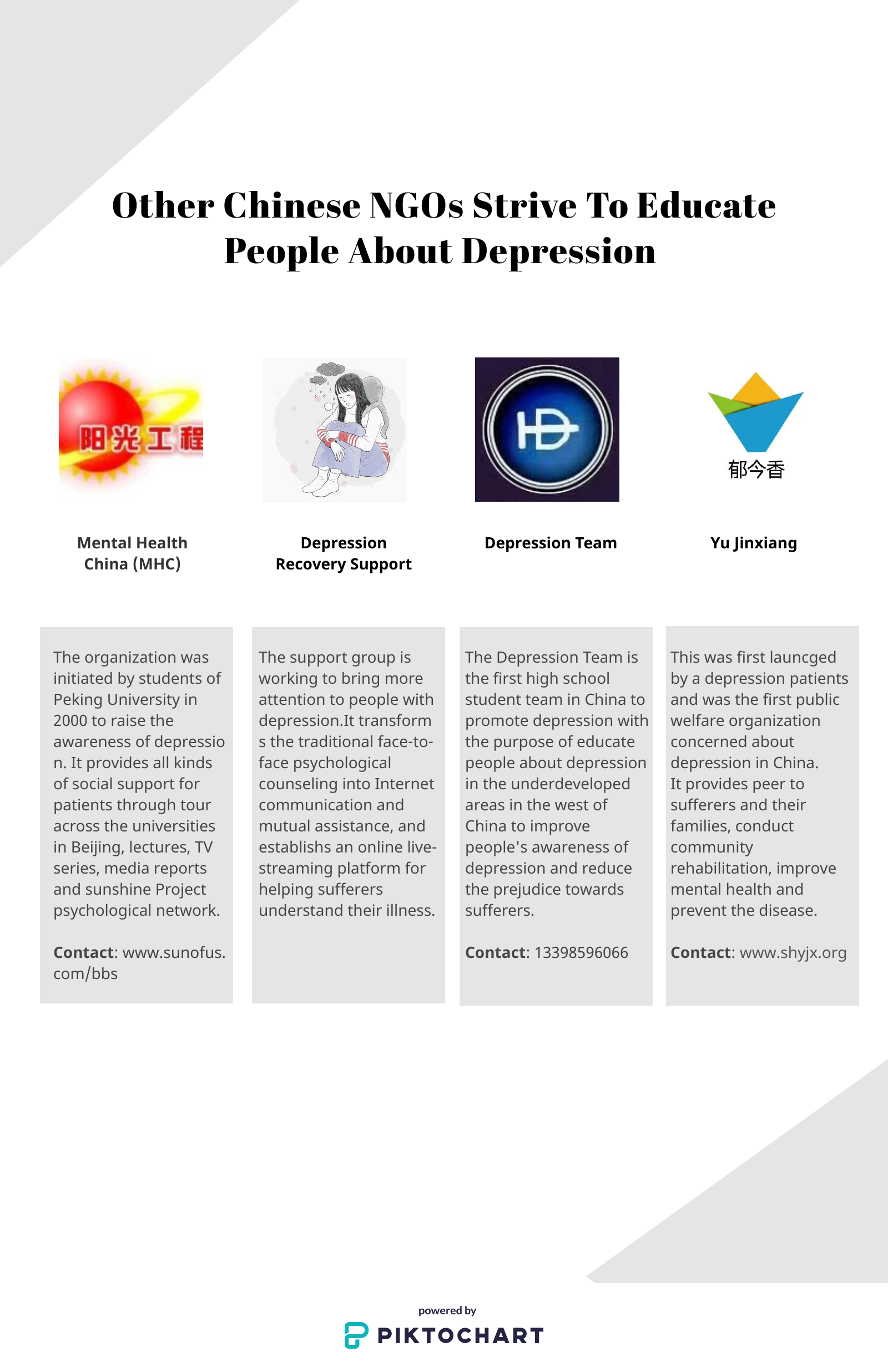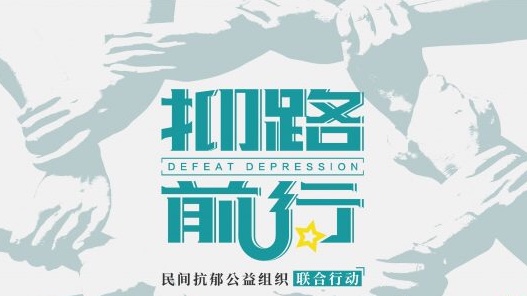A number of people have turned their attention to educate depression while facing difficulties in having few specialists and social resources. What are they doing to help more people develop a correct understanding of depression through public welfare activities?
In 2013, after witnessing the prejudice and discrimination his relative experienced due to depression, Qi Lin (assumed name), who was engaged in Beijing Public Welfare Alliance, planned to shift his focus to educate mental illness. But soon he found there were very few programs in this respect. Thoroughly considered the situation, he made a decision on setting up a brand-new one with his colleagues. However, a half year later, they did not get anywhere as the government was too careful about the process of the registration, varying from legal permission, resource mobilization channels to operation modes.
“There is also a strict limit on how many people can register and every NGO needs to have a business supervisor in charge of its daily routine, which is difficult for applicants as only few people are willing to supervise an organization without any profits in return while taking the risk,” said Qi, “Especially when referring to depression, because there are not many people who pay attention to it.
In addition, as the law requires, NGOs can only use funds of private equity group, which means they lose the opportunity of raising funds from the public. This again largely limits the development of those organizations and the non-transparent channels of donations also make it less reliable. In such a difficult situation, a part of people quit the program halfway.”
On the other hand, the perfect social support system does not exist within the society. Qi expressed his disappointment when he browsed the mental illness content on foreign websites, there are links at the bottom of the page to medical institutions, public welfare organizations and other related information. In contrast, this kind of resources in China are scarce. According to 《2020’s Survey Report In Depression Sufferers》, the social support for the sufferers was significantly lower than that of the non-sufferers, and 52 percent of the patients said they rarely received help when they were in trouble.
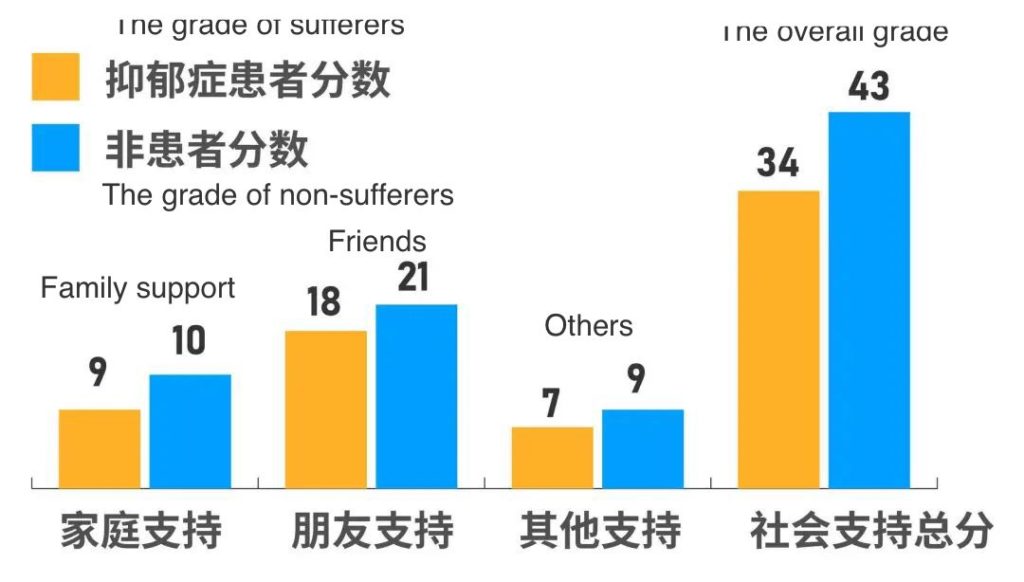
Photo: 《2020’s Survey Report In Depression Sufferers》
And things become more difficult because of the characteristic of depression and its sufferers. Huanchen Chen, who once participated in Mental Health China which aims to spread awareness about mental illnesses three years ago and was responsible for project management and operation, said: “Many disease-related programs are started by people who once being sufferers as they know what those people feel about, but it is hard to achieve in the case of depression.
Unlike other mental illnesses, people who suffer from depression are at high risk of relapse even after long-term recovery and are more vulnerable to external stimuli and influences than the general population. Therefore, it is unrealistic to make a group of emotionally unstable patients gather together to form a public community and popularize depression without professional management.
Similarly, it is going to be a difficult process if you only have a group of non-patients trying to build an organization. No matter how hard ordinary people try to learn the knowledge related to depression, they cannot completely put themselves in the patients’ shoes as they have no empathetic experiences and what they are saying is not persuasive enough. Thus in order to set up a successful non-profit organization, we need both patients who have the same sense of depression as well as professional psychologists and counselors to guide the project.”
However, according to《White Papers of China’s Depression Research (2019)》,currently only 20 people can provide mental health services among every million population, which is one fifth of that in the United States. And this figure even includes psychological consultants who cannot make medical diagnosis and have no rights to prescribe. Despite the growing number of psychiatrists in recent years, there are still 80 percent of the country’s general hospitals have no psychiatric departments, while outpatient visits for depression are increasing by at least 20 percent a year.
The shortage of professionals has largely limited the development of this kind of public welfare in China. Despite the twists and turns on the way, with the efforts of people from all walks of life, in 2012, Shangshan, the first public welfare foundation for mental health care and depression prevention was successfully established in Beijing. And three years later, it launched the “Running For People With Depression” campaign, which was one of the most influential activities across the country. This aimed to spread the knowledge of mental health as well as treatment for depression to the public by organizing regular non-profit running, training activities and important domestic competitions.
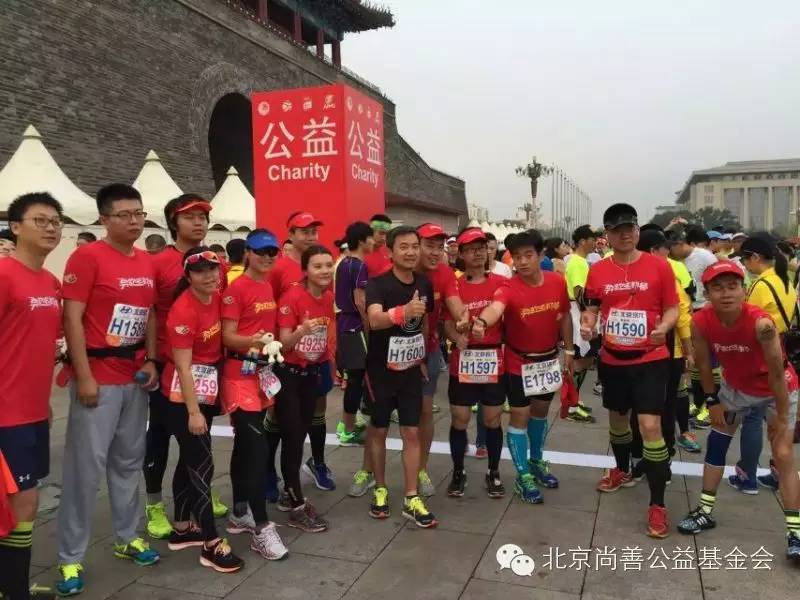
Photo: Beijing Shangshan Public Welfare Foundation
Qi, who also attended this campaign with her sister who suffered from depression, gave the campaign a thumbs-up and said: “When my sister wore on the T-shirt with a sign of paying attention to mental health and see the banners of caring people with depression, she was greatly encouraged and came to realized that her life was valuable because there were many helpers in the society that tried to save them. And her shame of being in depression was also reduced.”
In terms of media communication, Shangshan set up a prize for excellent public welfare communication work every year, which awards the best news production and innovative propagation modes for popularizing depression. This is regarded as a successful activity within the field due to the increasing participators on a year-to-year basis. During the award ceremony, prize-winners also shared their production process and stories behind the work, which promoted the further spread of the correct understanding of depression.
Besides, specialists were invited to write a guide handbook on introducing the disease, which is open to all and free of charge. As one of the authors of the handbook, Aizhen Mao, who once worked as a media worker, started to look for and study nearly all books related to depression after her son died from the disease. She said it was her son’s tragedy that motivated her to do all these.
“There are too many people like my son whose lives were taken away by depression, and they leave feeling guilty, and the last words that they often leave behind are ‘I’m sorry to everyone’ while were still not understood by the public. Actually, depression is just as same as heart disease, cancer, or any other disease when it gets rid of sufferers’ lives. However, the world is filled with guess and criticism and people are even use a simple sentence such as ‘why they were so pessimistic’ to summing up one life casually.” In the handbook, she called for a correct cognition of depression and talked about how to prevent the disease.
In an effort to make her son’s leaving more valuable as well as make her own life more meaningful, Mao is also looking for partners from various social backgrounds join in and subsidize Shangshan. She said: “For people with depression, they not only need positive treatment, but also understanding from their families and caring from the society. Only when the social environment becomes friendly enough and people change their fixed stereotype of depression can we save more sufferers’ lives. What patients need is love, which means tolerance, listening and companionship.”
In 2018, in the third year of its establishment, Shangshan, together with a number of civil anti-depression organizations across the country, launched a public welfare project aiming to break the boundaries and gather strength to jointly offer more comprehensive help to patients and improve the whole society’s cognitive ability and reaction towards the disease. They set up a “National Civil Anti-depression Action Alliance” and within a year, they carried out online and offline activities about educating patients about depression more than 700 times and benefit people over 70 thousands.
This action has been highly praised within the field. “Having a well-developed organization as a leader is of great help in opening up the market, especially when it is hard for small non-profit ones to promote activities,” Qi said, “It also supports a group of small public welfare organizations and helps them develop a sense of identity.”
And as Shangshan’s intimate partner, Tulip Sunshine Group also founded in 2015 and known as a civil anti-depression organization which advocates setting up mutual aid platform. Within five years since they set up, the organization expanded through developing city communities, gathering patients and their families while cooperating with psychologists and expert teams to carry out including family support group, offline rehabilitation activities and popular science lectures of more than 1200 sessions, which benefits nearly 2 million people.
In 2018, Tulip founded the “920 Yu You Day” and invited people who recovered from depression to share their stories and experiences through lectures, and encouraged patients to face up to their diseases, step out of the shadows and live in the sunshine.
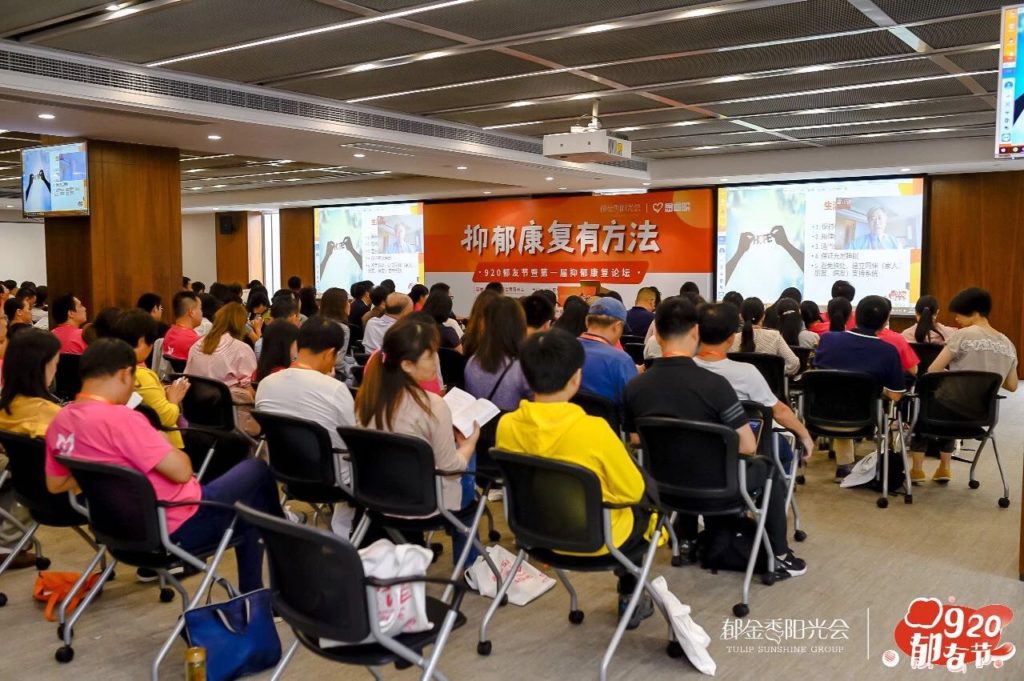
Photo: Tulip Sunshine Group
“Most patients are the same as ordinary people in society before they get sick,” said Hangyu Liu (assumed name), a project leader of Tulip Sunshine Group. “They also do not have a clear understanding of depression, so they often feel ashamed and inferior after they are diagnosed with the disease, and are unwilling to admit it and refuse to receive treatment.”
According to 《Blue Papers of China’s Depression Research (2019)》, among the 90 million people diagnosed in China, about 280,000 commit suicide each year because of depression. While more than a half had attempted suicide or self-harm. However, less than 7 percent of patients who have received regular treatment, taken medicine and seeking psychological counseling. Ren Ke, a sufferer who recover from depression, now trying to share her experiences and feelings towards other sufferers. She showed her hope that all patients would be brave enough to break the stigma of depression when attending a lecture held by Tulip Sunshine Group.
“Once my psychiatrist asked me, ‘If you can forgive the person who hurt and discriminate against you, why can’t you forgive yourself?’ It made me realize that being hurt was not my fault and there is no reason to blame myself for being depressed. I was just sick and needed to be taken care of.”
In addition to patients themselves, many families of them also participate in public welfare activities. Xiaomin Xu, who is a teacher in primary school knows nearly nothing about the disease only after her son being a sufferer and expressed her great appreciation for the organization and encouraged by it a lot.
She said: “If it were not for my child’s illness, I would not get to know this group at all. After my son diagnosed with depression, I’m afraid of being looked down upon by people around us and always try to keep it as a secret. However, through the activities, not only did I learn more about the community and feel a sense of belonging, but it also made me reflect on my own preconceptions about depression.”
However, as one of the few major public welfare organizations in this respect and have held a large number of successful campaigns, Tulip is still facing the problem of being understaffed just like other smaller ones. Except the lack of social resources for depression, the traditional Chinese concept of public welfare contributes a lot to this situation as well.
Lin Zhang (assumed name), an experienced volunteer of Tulip Sunshine Group, who have received some unfriendly treatments during his work said: “Many people do not regard public welfare as an act of seeking public benefit without expecting anything in return, but take it for granted. And some treat volunteers as if these matters are within their duties, or even require them to do something in an imperative manner. Coupled with the arduousness of popularizing depression, not many people are able to sustain the work in the long run.”
Up to now there are more than 95 million people struggling with depression in China, but many more are negatively affected by the misunderstanding of the disease. “Public welfare campaigns are important ways to get rid of the prejudice of depression in our society and the efforts of every staff member should be highly respected. I think public welfare is a kind of social action that everyone can make contributions and even a good feedback on our work is a great support. Hopefully more people can join us and maybe the one you saved is right next to you,” said Lin.
